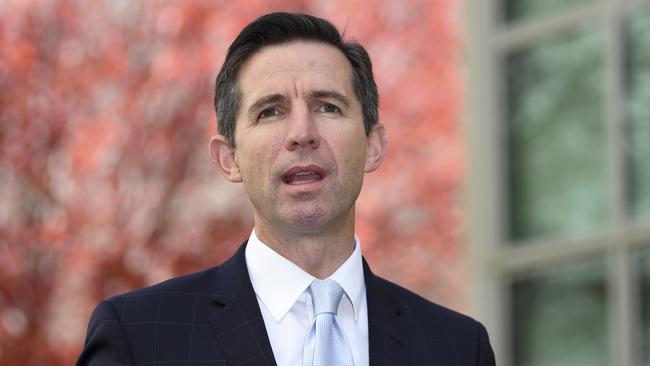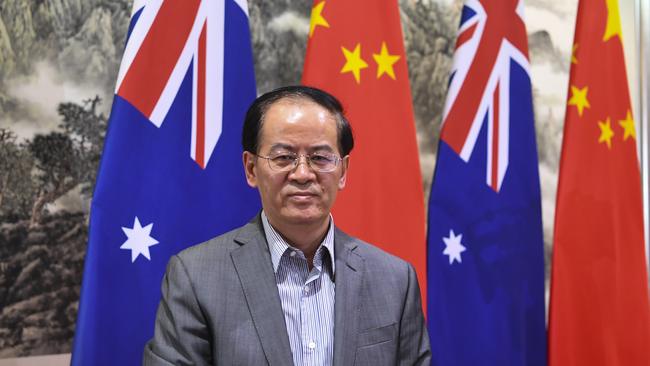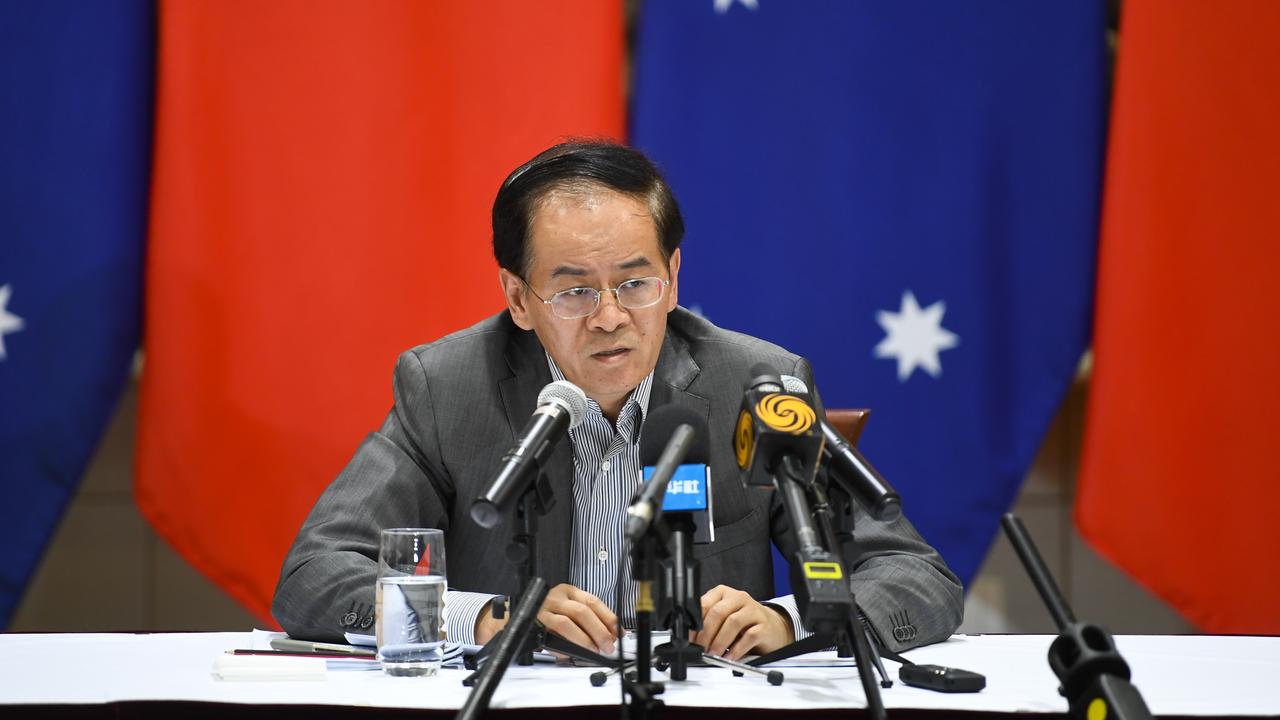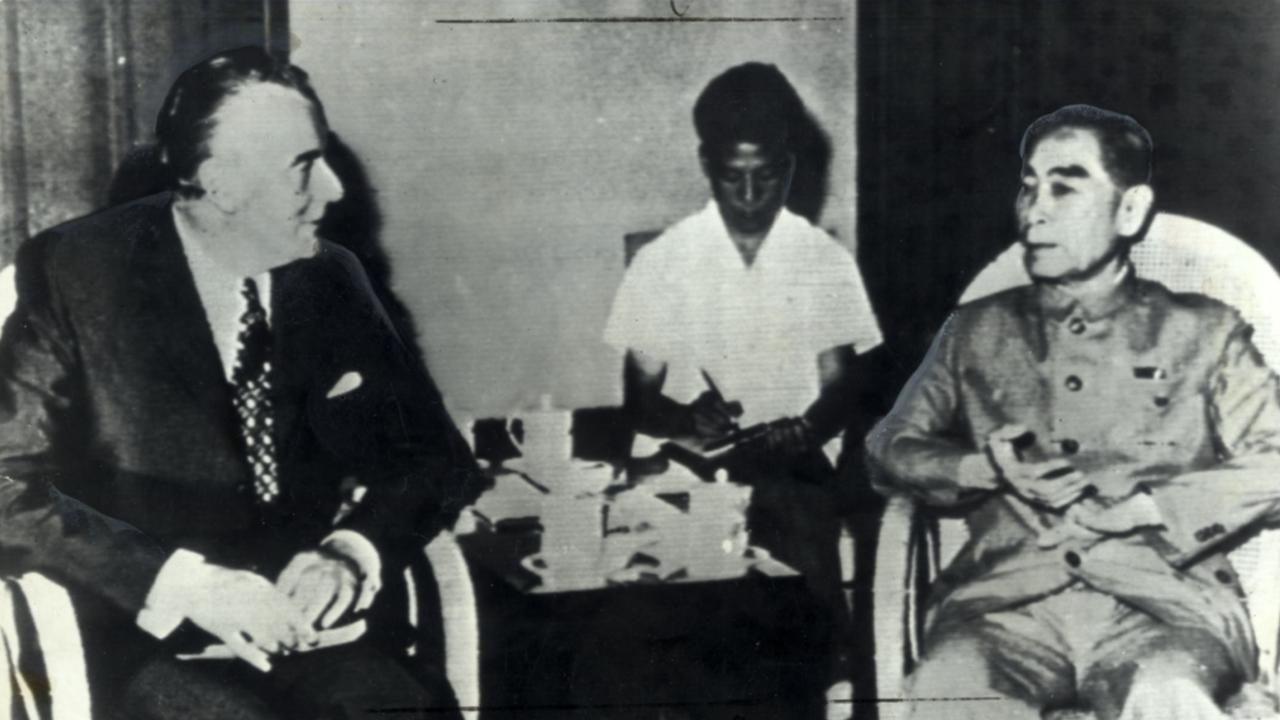China exports cheap shots as complaint over tariffs looms
Australia-China relations headed towards crisis point amid fresh war of words with Beijing’s top diplomat in Canberra.

Australia’s relationship with China is headed towards crisis point amid a fresh war of words with Beijing’s top diplomat in Canberra, and fears of further reprisals from the nation’s biggest trading partner.
As the government prepares to fight new Chinese barley tariffs, Trade Minister Simon Birmingham was forced to respond to a Chinese embassy statement branding Australia’s success in securing a global investigation into the coronavirus as “nothing but a joke”.
Senator Birmingham, whose calls to Chinese counterpart Zhong Shan have been ignored, accused the Chinese of “cheap politicking” over the serious issue of COVID-19.
A day after Australia secured the backing of more than 130 countries for an independent inquiry into the WHO’s handling of the coronavirus, which China belatedly backed, fresh threats of trade sanctions against Australian produce emerged.
Australian wine, seafood, oats, fruit and dairy exports are reportedly on a list of commodities drawn up by Chinese officials that could face stricter quality checks, delayed Customs clearances, anti-dumping probes or state media-encouraged consumer boycotts.
Australia is poised to launch a challenge in the World Trade Organisation against China’s decision to slap an 80 per cent tariff on $600m of Australian barley imports, as trade offices around the world ramp up efforts to find new buyers. Agriculture Minister David Littleproud sought to ease the tensions, saying negotiators were “working calmly and methodically” with Chinese counterparts to try to find a solution to the dispute.
Chinese ambassador Cheng Jingye chose “wolf warrior” diplomacy, a growing tactic of Beijing’s envoys, attacking Australia’s efforts to secure global support for the coronavirus inquiry at the World Health Assembly on Tuesday morning.
“The draft resolution on COVID-19 to be adopted by the World Health Assembly is totally different from Australia’s proposal of an independent international review,” his spokesman said.
“To claim the World Health Assembly’s resolution is a vindication of Australia’s call is nothing but a joke.”
Australian officials believe the statement was aimed at trying to send a message to the Australian public that the government was sacrificing its trading relationship with China for nothing. But the WHA outcome was widely seen as a win for Australia and the European Union, which worked together on the motion calling for a “comprehensive evaluation” of the pandemic.
Senator Birmingham said he would not stoop to political attacks over COVID-19, declaring “these issues ought to be considered seriously”.
“Australia is not going to engage in cheap politicking over an issue as important as COVID-19,” he told Sky News.
“COVID-19 has claimed the lives of hundreds of thousands of people around the world, including Chinese lives. It’s caused economic devastation with the loss of millions of jobs, including Chinese jobs. Our engagement through the World Health Assembly has been to seriously engage with other parties around the globe.
“I would have thought the appropriate response from China’s ambassador in Australia would have been to welcome those outcomes.”
The flare-up came as Donald Trump gave the World Health Organisation 30 days to commit to “major substantive improvements” to demonstrate “independence from China” before the US moved to permanently freeze all funding to the body.
Mr Trump tweeted the letter containing the ultimatum after China’s President, Xi Jinping, pledged $3bn to support the world’s COVID-19 response, a move swiftly attacked by US officials as an attempt by Beijing to influence the WHO.
The Lowy Institute’s China expert, Richard McGregor, said the bilateral relationship between Australia and Beijing was hitting new lows by the day, inflamed by “multiple points of conflict”.
“Just when you think there is a floor under it, another trap door opens up,” Mr McGregor said.
“The Chinese ambassador is not a rogue ambassador. He is clearly doing this on instructions; it’s coming straight from Beijing. And that’s about as big a signal as you can get.”
The ambassador’s latest inflammatory intervention follows his warning that Australia’s pursuit of an independent inquiry into the coronavirus pandemic could spark a Chinese consumer boycott of Australian goods and services.

Dennis Richardson, a former head of both the Defence Department and the Department of Foreign Affairs and Trade, said the Chinese embassy’s statement was “petty and immature”.
“It’s the equivalent of a little kid having his ice cream taken away from him standing on the footpath, stamping his feet,” he said.
Mr Richardson — a former Washington ambassador and ASIO chief who has expressed concern about letting national security dominate the government’s agenda — said the Chinese statement also misunderstood the nature of multilateral negotiations. “In any of these matters, you always end up with a resolution that is negotiated,” he said.
“That is what happens in multilateral forums and there was nothing unusual at all about the fact that the resolution was negotiated and entailed a form of words designed to maximise support.”
Senator Birmingham said Australia was “deeply disappointed” with China’s new barley tariffs, which were based on “ridiculous” claims of Australian government support for growers.
It’s understood a dispute will be lodged with the WTO within weeks if China fails to back down.
“Unless they reverse this there is not really another option,” one source said.
It’s understood the government’s submission to the Chinese anti-dumping review was scathing of Beijing’s handling of the tariff appeal, hitting out at the lack of time given to respond and China’s claims it communicated its concerns with farmers.
With an outcome to the dispute months or potentially years away, barley growers are preparing to take advantage of the gap China created in its malt exports, which it had previously filled by value-adding Australian barley.
Grain Producers Australia chief Andrew Weidemann said he would push for Australia to build its malt-making capacity and target Chinese customers in Thailand, Vietnam and other Southeast Asian countries.
“American barley will not be half the quality. There will be extra costs but the malt gap does leave opportunities for us,” Mr Weidemann said.
China has also slapped trade bans on three Queensland abattoirs in recent days, citing labelling and certification problems. China’s foreign ministry said the move was “to secure the health and safety of Chinese consumers”.
A Bloomberg report on Tuesday suggested the tactic could be deployed against other Australian food imports.
The EU-led resolution at the WHA pushing for an “impartial, independent and comprehensive evaluation” into the health response to the pandemic, co-sponsored by more than 130 countries, was passed by consensus on Tuesday night.
Health Minister Greg Hunt said he was “delighted” with the result. “The support of 137 co-sponsors further strengthens this as a key step to protect against future pandemics,” he tweeted.
Additional reporting: Joe Kelly







To join the conversation, please log in. Don't have an account? Register
Join the conversation, you are commenting as Logout